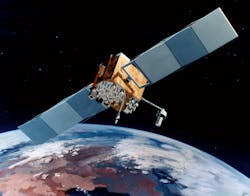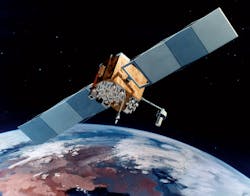Galileo, the European Union’s answer to GPS experienced a major outage beginning July 11, and remains offline as of this posting on July 15. According to a report by the BBC, the cause is a "technical incident related to its ground infrastructure." Engineers labored over the weekend to rectify the problem but as of yet, there is no update on when the Global Navigation Satellite System (GNSS) will resume service.
"Experts are working to restore the situation as soon as possible,” GSA said in a statement July 14. “An Anomaly Review Board has been immediately set up to analyze the exact root cause and to implement recovery actions."
EU’s Galileo is presently in an initial roll-out phase, which means it would not yet lead critical applications.
It has been reported that the search-and-rescue functions on Galileo satellites are unaffected by the outage.
Galileo was launched in 2016. Currently, 26 satellites are in orbit for the program.

